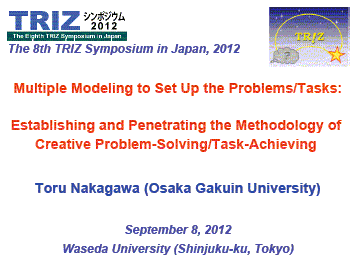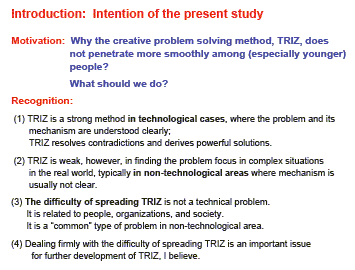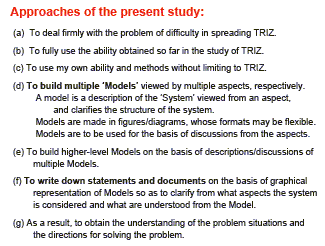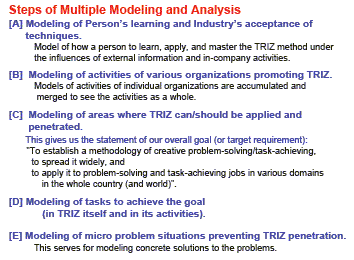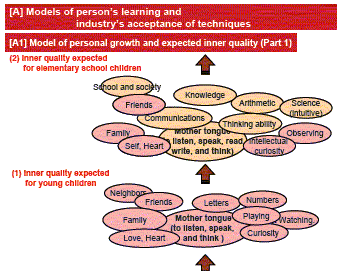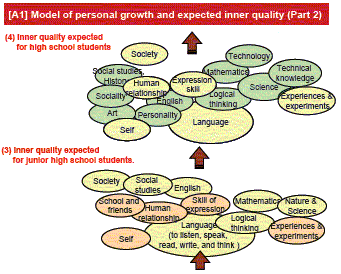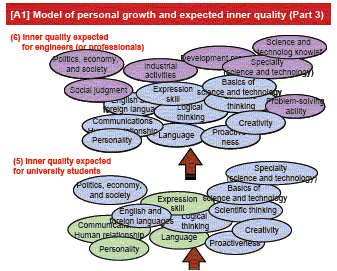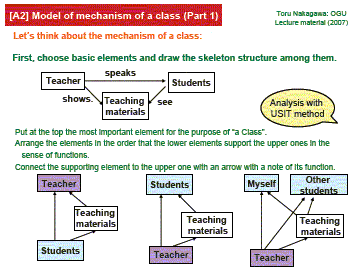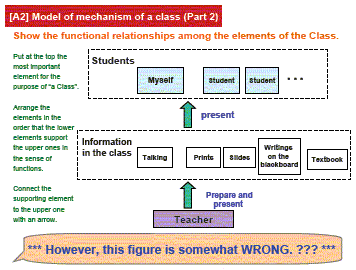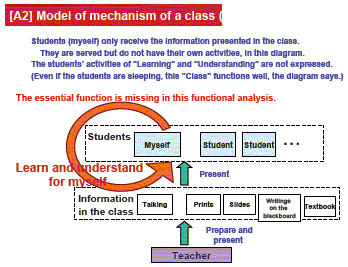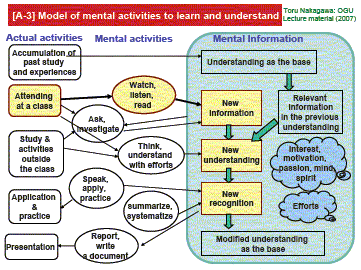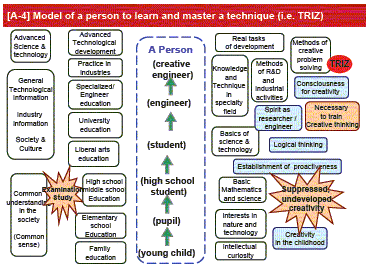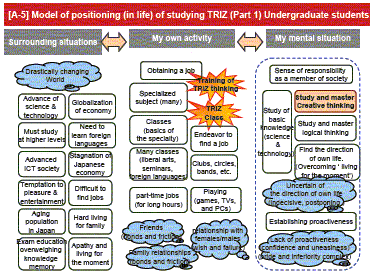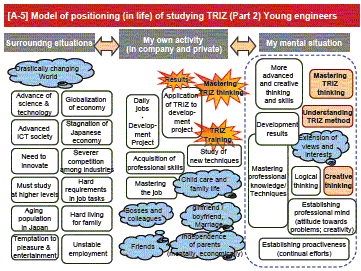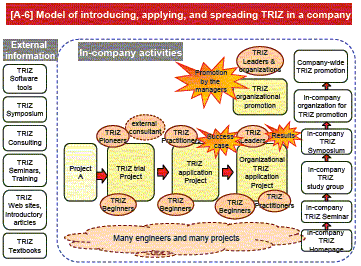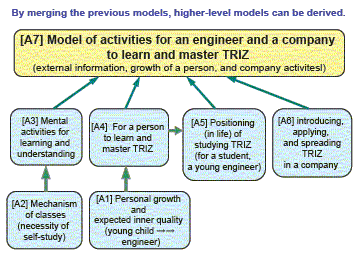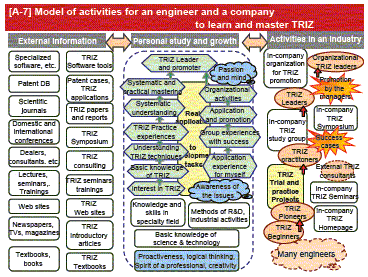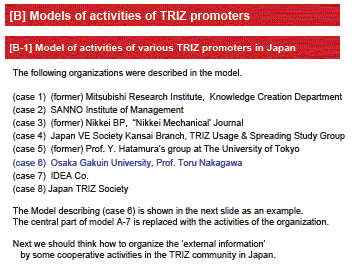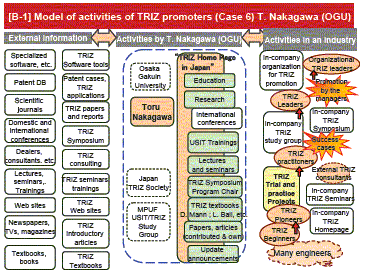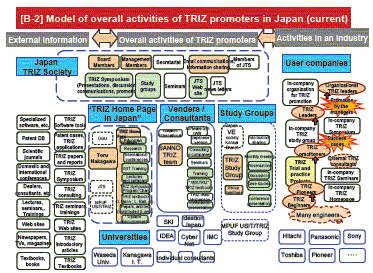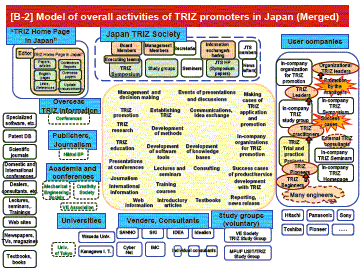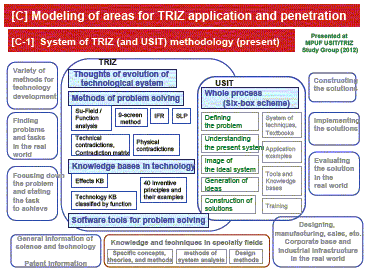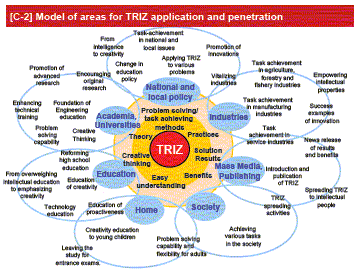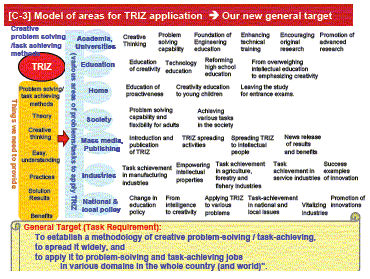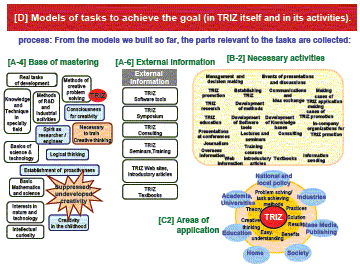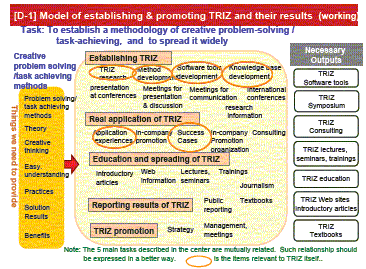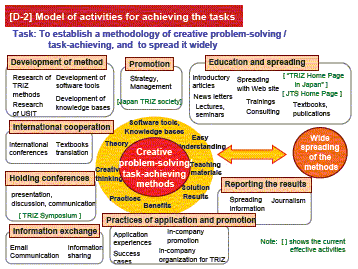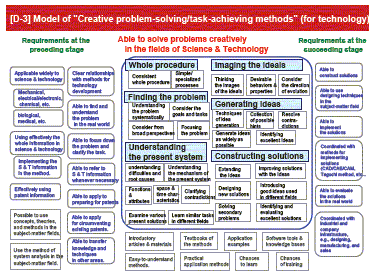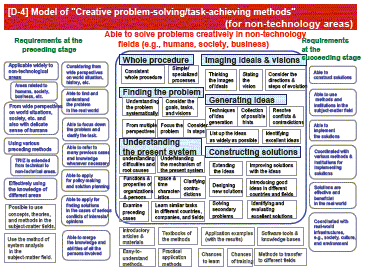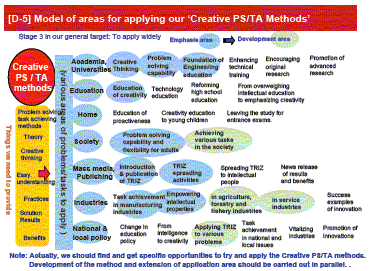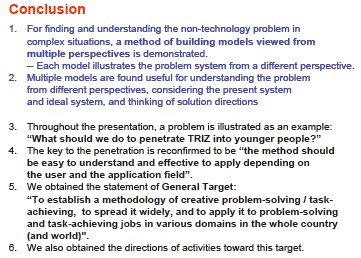Why TRIZ, a creative problem-solving methodology, does not penetrate more smoothly? and What should we do? -- This is the starting point of the present study. The problem is quite common in nature, and is related to humans, organizations, and society rather than to technology. The present study has made an approach to this problem by building multiple models of the problem situations viewed from different angles.
In Phase 1, I have built models for a person to learn something and for an industry to accept a technique, and further a model where a person learn/apply/master the TRIZ method under the influences of various information from outside and of TRIZ-related activities in a company.
In Phase 2, I have built a model of the activities to be achieved by various TRIZ promoters and users as a whole, and also of the domains where TRIZ applications can be expected in the scale of a country (i.e., Japan). As the result, I obtained the Statement of our General Purpose: "To establish a methodology of creative problem-solving/task-achieving, to spread it widely, and to apply it to problem-solving and task-achieving jobs in various domains in the whole country (and world)".
In Phase 3, I have broken down the General Purpose to build a model of the contents of the methodology to be established and another model of activities for establishing and spreading the methodology.
In Phase 4, I am going to model micro-situations of common, real problems which would prevent the penetration and to seek for directions to solve the problems.
-- The present approach of using multiple models is still at a stage of initial trial, but it is found easy to understand and useful for obtaining consensus by different groups of people.
